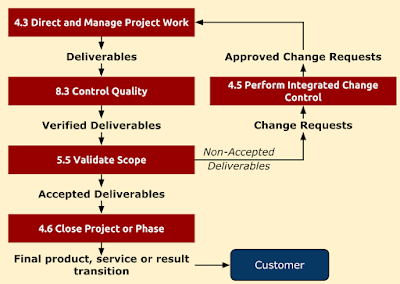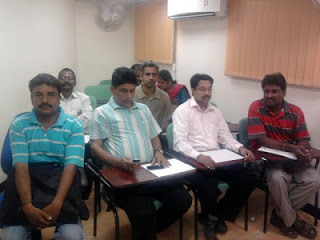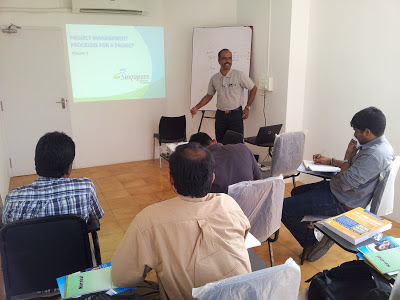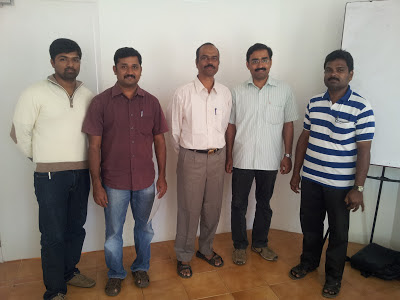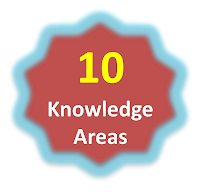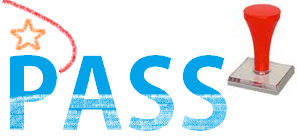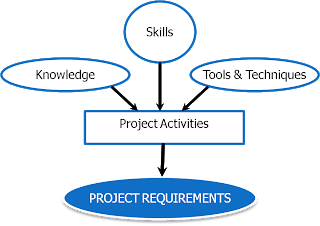Here, you will find a list of mock PMP exam questions that are designed to represent the actual PMP exam questions as closely as possible. These free mock PMP exam questions are framed based on my personal experience in appearing for the PMP exam and the PMI-RMP exam.
The real PMP exam questions are not easier; but the more you practice, it would be better for you to face the actual PMP exam questions with ease at the exam.
The real PMP exam questions are not easier; but the more you practice, it would be better for you to face the actual PMP exam questions with ease at the exam.
Mock PMP Exam Questions
| 1. You are the project manager for a software project. You are in the process of establishing the policies, procedures and documentation for planning, developing, managing, executing and controlling the project schedule. You may use all of the following Tools & Techniques EXCEPT: (A) Expert judgment (B) Meetings (C) Decomposition (D) Analytical techniques |
| 2. The following are all examples of Organizational Process Assets EXCEPT: (A) Historical information (B) Organizational structure (C) Templates (D) Change control procedures |
| 3. You are the project manager of a $400 million construction project. You, along with your team, have identified and documented the specific actions to be performed to produce the project deliverables. What would be your immediate next action be?: (A) Develop Schedule (B) Collect Requirements (C) Sequence Activities (D) Select Sellers |
| 4. Your project involves the construction of a temporary concrete road. The road is expected to be in use for 6 months before it gets demolished. You have completed the laying of the temporary concrete road. But, the customer specification states that you have to wait for 28 days before using the road. Which of the following relationships most likely represents the relationship of the start of the use of the road to the completion of the construction of the road? (A) Finish-to-start with a 28 days lead (B) Finish-to-finish with a 6 months lag (C) Finish-to-start with a 28 days lag (D) Start-to-finish with a 28 days lag |
| 5. You are in the planning process of a $1b project. You realize that your schedule requires more resources in certain months of the project than that are available to you. Your senior management has clearly instructed that you will not be able to obtain any additional resources for the project. So, you instruct your planner to adjust the schedule to accommodate these constraints. What are you instructing the planner to do? (A) Crashing (B) Resource leveling (C) Programme Evaluation and Review Technique (D) Fast tracking |
|
You may also be interested in:
|
| 6. Projects are a means of achieving objectives within an organization's strategic plan. Which of the following statements is NOT true about projects? (A) Every project creates a unique product, service or result (B) The duration of the project is short (C) Repetitive elements may be present in some project deliverables and activities (D) A project can involve a single individual |
| 7. The project charter contains high level information. Which of the following elements is NOT typically found in a project charter? (A) Project purpose or justification (B) Summary milestone schedule (C) Work packages (D) Stakeholder list |
| 8. The key benefit of performing quantitative risk analysis is that it produces quantitative risk information to support decision making in order to reduce project uncertainty. Which of the following is NOT a commonly used quantitative risk anlaysis and modeling technique? (A) Tornado diagram (B) Decision tree diagram (C) Monte Carlo Technique (D) Delphi Technique |
| 9. An organization invests certain amount of money into a project and makes $48,400 after 2 years. If the rate of return is 10%, how much money did the organization invest in the project? (A) $44,000 (B) $40,000 (C) $47921 (D) $47446 |
| 10. An organization is trying to choose between two projects. Project A has an estimated cost of $400,000 and an estimated NPV of $90,000. Another project B has an estimated cost of $360,000 and an estimated NPV of $110,000. If the senior management decides to go ahead with project B, what would be the opportunity cost? (A) $40,000 (B) $20,000 (C) $90,000 (D) $110,000 |
Answers to the above questions are available at:
